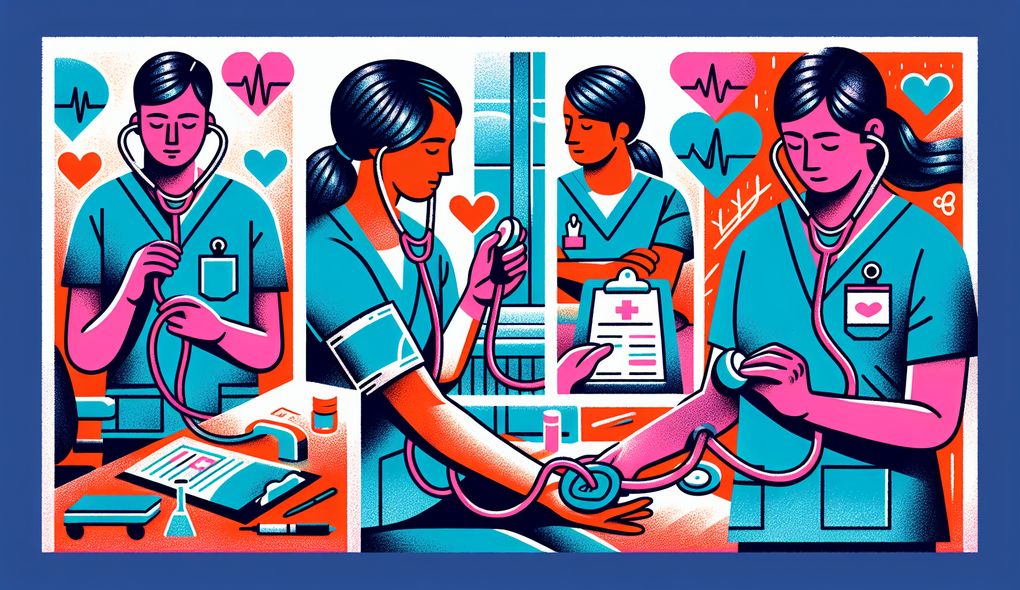Describe a time when you had to handle a challenging patient. How did you handle the situation?
INTERMEDIATE LEVEL

Sample answer to the question:
I had a challenging patient who was extremely anxious and resistant to receiving medical care. I handled the situation by taking a calm and empathetic approach. I first took the time to listen to the patient's concerns and fears, acknowledging their feelings and validating their experiences. I then explained the importance of the care they needed and how it would benefit their overall health. I also involved the patient in the decision-making process, giving them choices and options whenever possible. Throughout the interaction, I maintained a reassuring and supportive demeanor, reassuring the patient that they were in good hands. Eventually, the patient became more receptive to the care and allowed me to proceed with the necessary procedures.
Here is a more solid answer:
I had a challenging patient who suffered from dementia and frequently exhibited aggressive behaviors. To handle the situation, I employed a multi-faceted approach. First, I utilized my excellent communication skills to establish a rapport with the patient and gain their trust. I spoke calmly and attentively, validating their feelings and providing reassurance. I also worked closely with the patient's family and the interdisciplinary team to develop a personalized care plan that incorporated techniques to manage the challenging behaviors. This included providing a calm and structured environment, using redirection techniques, and implementing sensory-based interventions when needed. Additionally, I attended training sessions on dementia care to enhance my knowledge and skills in handling challenging behaviors. Through consistent and compassionate care, I was able to build a positive relationship with the patient and improve their overall well-being.
Why is this a more solid answer?
The solid answer provides specific details about the challenging patient and the actions taken to handle the situation. It demonstrates the candidate's excellent communication and interpersonal skills, as well as their ability to adapt to a diverse healthcare setting. However, it could be further improved by elaborating on the collaboration with the healthcare team and providing more examples of specific techniques used to manage the patient's aggressive behaviors.
An example of a exceptional answer:
I had a challenging patient who had a history of substance abuse and was admitted to the hospital with severe withdrawal symptoms. The patient was agitated, irritable, and resistant to any medical intervention. Recognizing the urgency of the situation, I immediately contacted the primary care physician and the addiction specialist to develop a comprehensive care plan. Together, we decided to implement a combination of pharmacological and non-pharmacological interventions to manage the withdrawal symptoms and ensure the patient's safety. I coordinated with the multidisciplinary team, including the psychiatrist, social worker, and rehabilitation counselor, to provide holistic care. I also maintained constant communication with the patient, explaining each step of the treatment process and addressing their concerns. Through my compassionate approach and collaborative efforts, I was able to help the patient successfully navigate the withdrawal process and connect them with appropriate support services for long-term recovery.
Why is this an exceptional answer?
The exceptional answer goes above and beyond by providing a complex and challenging scenario that showcases the candidate's ability to handle difficult situations. It demonstrates their strong dedication to patient care, as well as their knowledge of nursing practices and procedures. The candidate effectively highlights their excellent communication and interpersonal skills and their ability to work well in a team and adapt to diverse healthcare settings. The answer could be further enhanced by including specific details about the non-pharmacological interventions used and providing examples of emotional support provided to the patient.
How to prepare for this question:
- Reflect on your past experiences with challenging patients and think about the strategies you used to handle those situations.
- Stay updated on the latest research and techniques for managing challenging behaviors or conditions specific to the healthcare setting you are applying for.
- Practice active listening and empathy skills to build rapport and trust with patients in challenging situations.
- Familiarize yourself with the principles of collaboration and interdisciplinary teamwork in healthcare settings.
What are interviewers evaluating with this question?
- Excellent communication and interpersonal skills
- Compassionate nature with a strong dedication to patient care
- Ability to work well in a team and adapt to diverse healthcare settings

